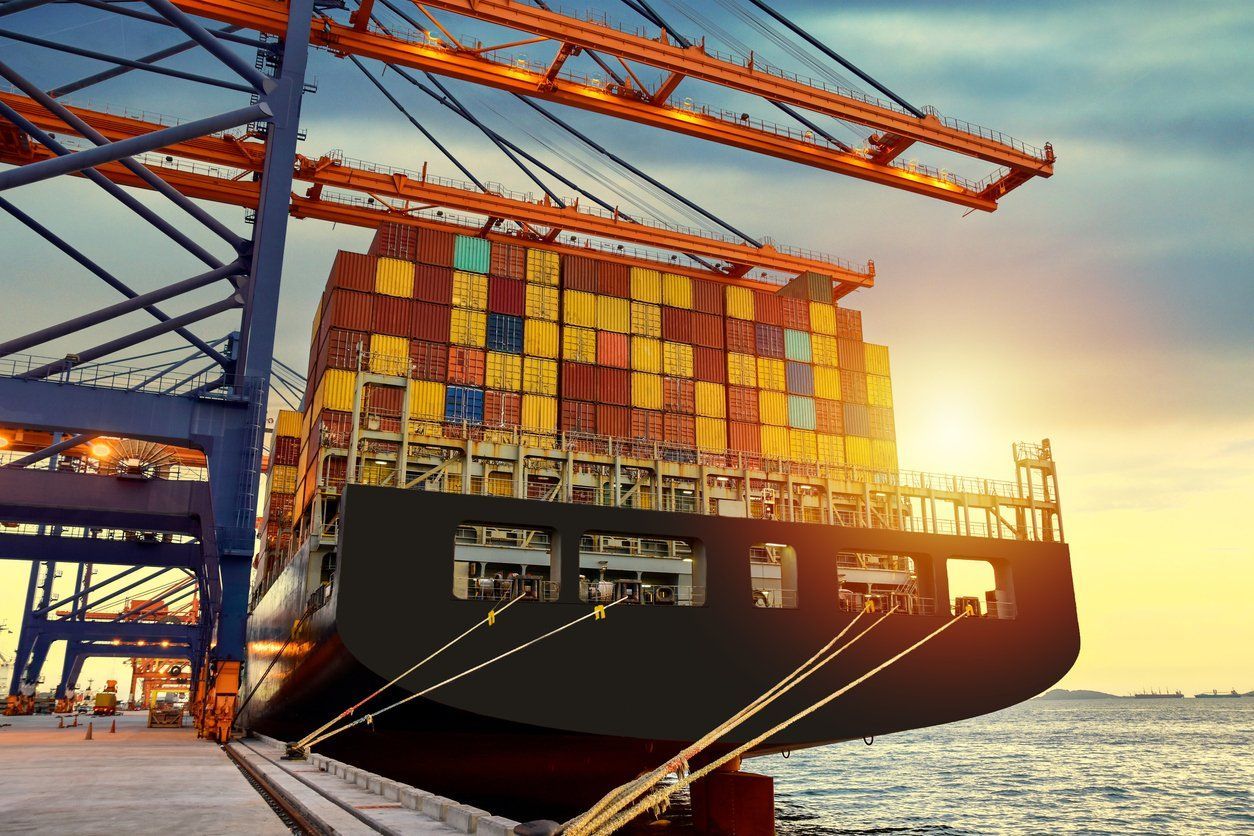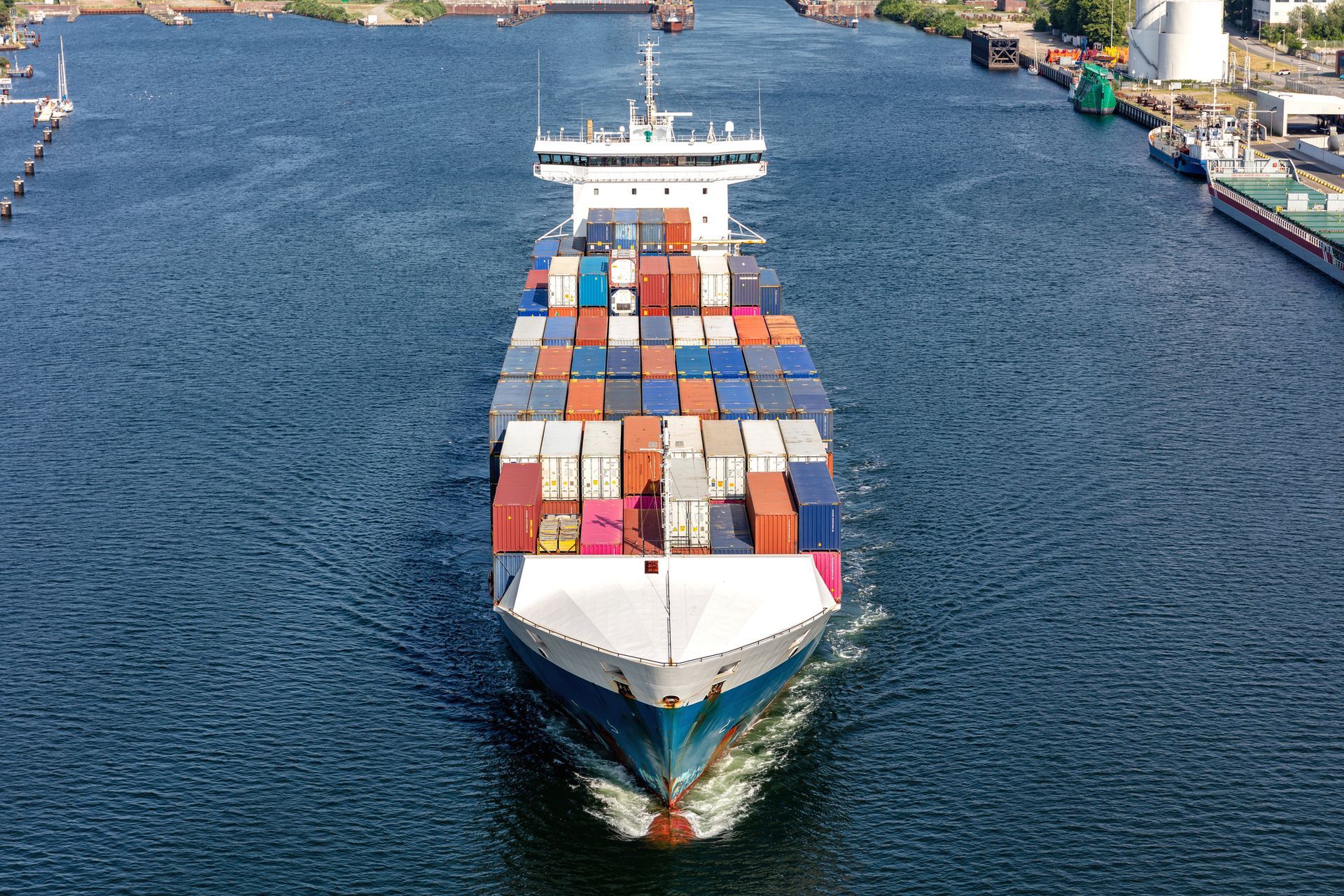
If you work in the field of foreign trade and international logistics, you've probably heard of LCL and FCL. These acronyms refer to two modes of maritime cargo transportation, and that's what we'll discuss in this article. Continue reading to understand how each mode works, making it easier to choose the type of cargo shipment for your company.
What is LCL?
LCL stands for "Less than a Container Load," meaning the cargo is smaller than a full container. This occurs when a company does not have enough cargo to fill an entire container and consolidates its smaller load with other smaller loads.
When a company opts for an LCL shipment, the container carrying its goods will also contain several other shipments. This sharing results in a lower maritime freight cost, as multiple companies share the expense.
In this mode, the freight cost is determined by the greater of the two: the weight of the goods (in tons) or the volume (m³). For example, the LCL freight rate might be $50 per ton or per cubic meter. Therefore, a cargo with 1 cubic meter and 2 tons would cost $100.
Is this type of shipment safe?
Yes, because the goods are divided into lots within the container, ensuring their safety. Once they reach their destination, the lots are carefully separated and delivered to the recipient in an orderly manner.
What is the difference between LCL and FCL?
Now that you know LCL is a mode of transportation that allows sharing a container with other exporters, it's time to understand how it differs from FCL.
FCL, or "Full Container Load," means the exporter has enough cargo to fill a container alone. In this mode, the freight cost is fixed, and the container has only one consignee.
LCL and FCL: Which to choose?
You know the difference between LCL and FCL, but you're still unsure which to choose for exporting your goods?
The simplest starting point for this decision is this question: Is your cargo bulky enough to fill a container?
If it's a small load, it can be shipped with several other loads until the container is full. In this case, you can choose LCL transportation.
However, if the volume of goods is large enough to fill one or more containers, opt for FCL.
Another point to consider when choosing the transportation mode is deadlines and costs. There are cases where, even if the cargo does not fill the entire container, opting for FCL is advantageous due to economies of scale.
To illustrate: economies of scale occur when the fixed transportation costs of a load can be spread over a larger load weight.
Regardless of the volume of goods, rely on an NVOCC to consolidate your cargo and facilitate your export process.
How the LCL Shipping Process Works
The first step in LCL service is cargo consolidation. At this stage, the cargo goes to a warehouse and remains there until other loads are ready for consolidation.
Once the loads are complete, they proceed to the port for export clearance and loading onto the ship.
It may also be necessary to transfer loads between containers during international transportation stages.
Upon reaching their destination, the loads undergo deconsolidation, which is the process of separating the goods into shipments. After that, they are loaded onto another vehicle and taken to their destination.
Shared Responsibility in LCL Shipping
Another important aspect of LCL transportation is the responsibility of shippers (cargo owners) to minimize the chances of delays or other issues.
This requires commitment to fulfilling legal obligations, proper document submission, ensuring goods are securely packaged, and purchasing insurance.
Problems and delays can increase shipping costs. For peace of mind, all this information can be clarified with the shipping company.
Other Interesting Topics Related to LCL
Another Denomination
LCL is also known as "loose cargo" and FCL as "full container."
NVOCC and Others
LCL allows freight forwarders, agents, and NVOCCs (Non-Vessel Operating Common Carriers) to contract the service and resell it in smaller lots to exporters or importers.
When we talk about NVOCCs, we refer to companies with global structures and expertise to handle cargo logistics.
Booking or Space Reservation
This is the reservation for transporting goods on a specific date.
Unloading or Stripping?
"Stripping" is a term commonly used in maritime transport. Thus, stripping a container means unloading it by removing all the cargo inside.
Choosing LCL Maritime Transport as a Business Strategy
In addition to the benefits already mentioned, choosing LCL can also be a strategic business decision in different ways:
- Sending small orders to various locations frequently;
- Lower export costs for small products, as freight varies according to cargo size;
- Maintaining low inventory levels and working only with smaller inbound and outbound shipments.
We hope our content has been useful and informative. How about receiving diverse content firsthand? Just subscribe to our newsletter!
Oh, and take the opportunity to download our
LCL Guide to delve deeper into the topic!
Continue a navegar no blog da Allink

Mantenha-se informado sobre o comércio exterior
Assine nossa newsletter e receba atualizações semanais de forma gratuita sobre o mundo da logística.




